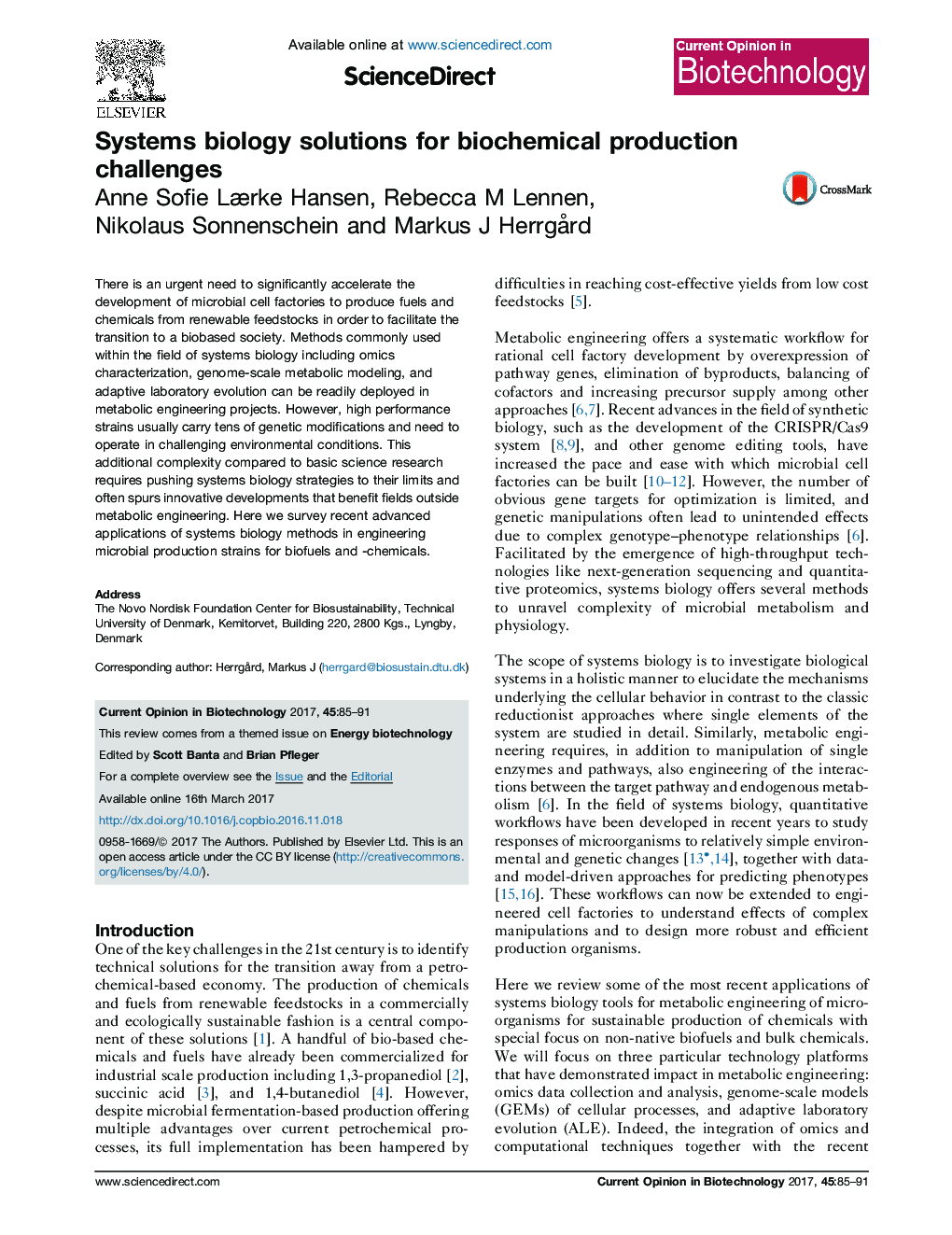| Article ID | Journal | Published Year | Pages | File Type |
|---|---|---|---|---|
| 6451654 | Current Opinion in Biotechnology | 2017 | 7 Pages |
â¢Systems-level insight into production strains enables predictable metabolic engineering.â¢Multi-omic studies of production and platform strains are increasingly common.â¢Genome-scale models enable strain design and omics data analysis.â¢Adaptive laboratory evolution facilitates strain optimization and discovery of new mechanisms.
There is an urgent need to significantly accelerate the development of microbial cell factories to produce fuels and chemicals from renewable feedstocks in order to facilitate the transition to a biobased society. Methods commonly used within the field of systems biology including omics characterization, genome-scale metabolic modeling, and adaptive laboratory evolution can be readily deployed in metabolic engineering projects. However, high performance strains usually carry tens of genetic modifications and need to operate in challenging environmental conditions. This additional complexity compared to basic science research requires pushing systems biology strategies to their limits and often spurs innovative developments that benefit fields outside metabolic engineering. Here we survey recent advanced applications of systems biology methods in engineering microbial production strains for biofuels and -chemicals.
Graphical abstractDownload high-res image (160KB)Download full-size image
